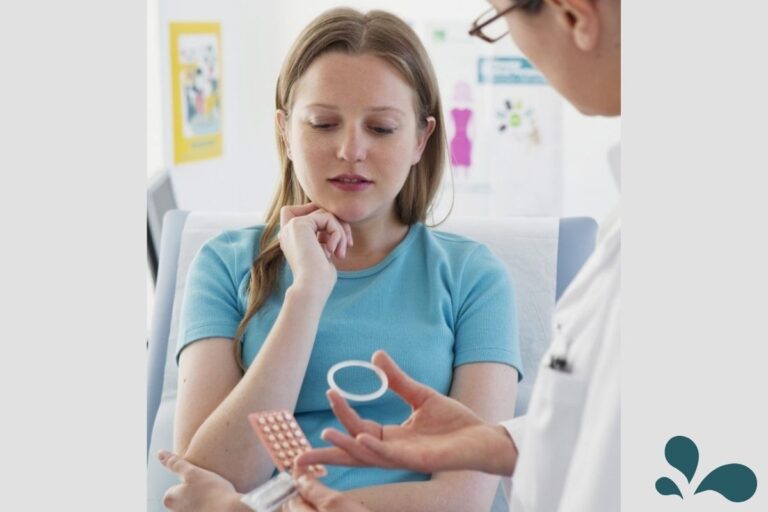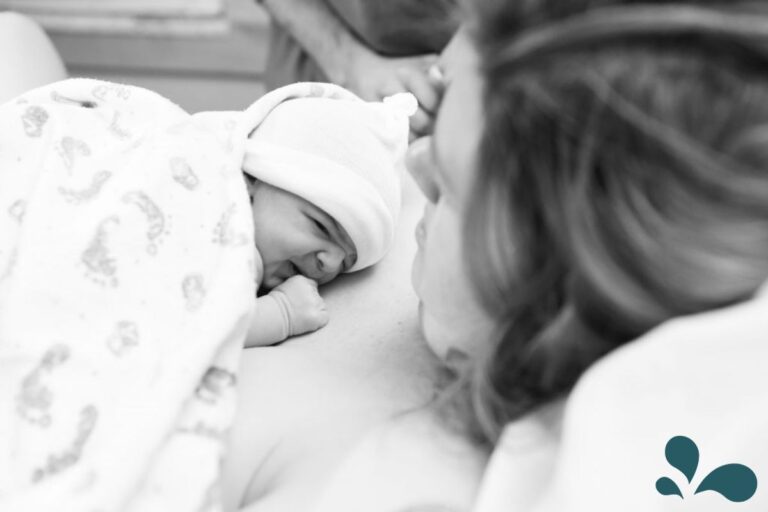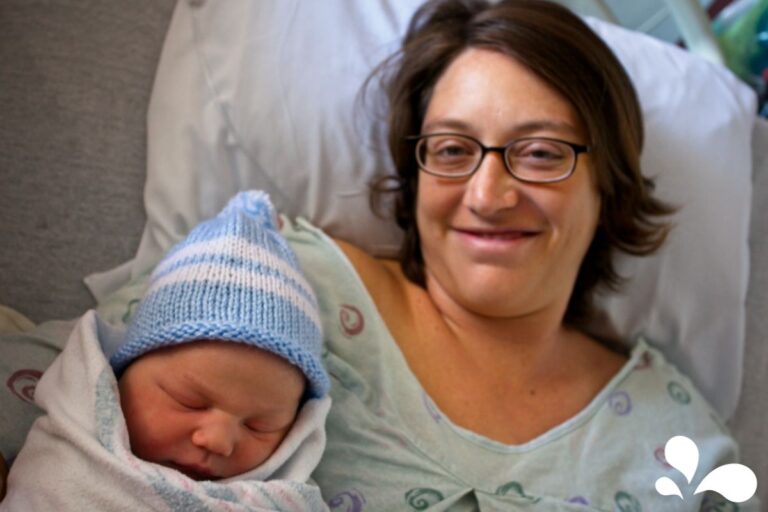The new year has just begun and many of you have made goals that you want to accomplish before the year ends. One of those goals may be to get pregnant. If that’s the case then here are 10 things to do before you start “trying” to get pregnant to help you have the best pregnancy possible.
1 – Take prenatal vitamins
Prenatal vitamins are recommended for any woman between the ages of 18 and 45 (what is considered to be “childbearing years”). Studies have found that taking a prenatal vitamin that contains 400-800mcg [micrograms] of Folic Acid daily, before conception, decreases the risk of Neural Tube Defects (NTDs) (Liu, et. al.). Prenatal vitamins tend to be hard on the stomach and cause fishy burps (at least that is my experience).
If you have a hard time with normal prenatal vitamins you may want to try gummy prenatal vitamins.
(That’s what I do. They taste so much better and I don’t get the yucky burps after taking them). Or you can take your vitamin at night before bed (then you sleep through the possible stomach upset). If you don’t want to take a prenatal vitamin, you should at least take a folic acid supplement to decrease the risk of NTDs.
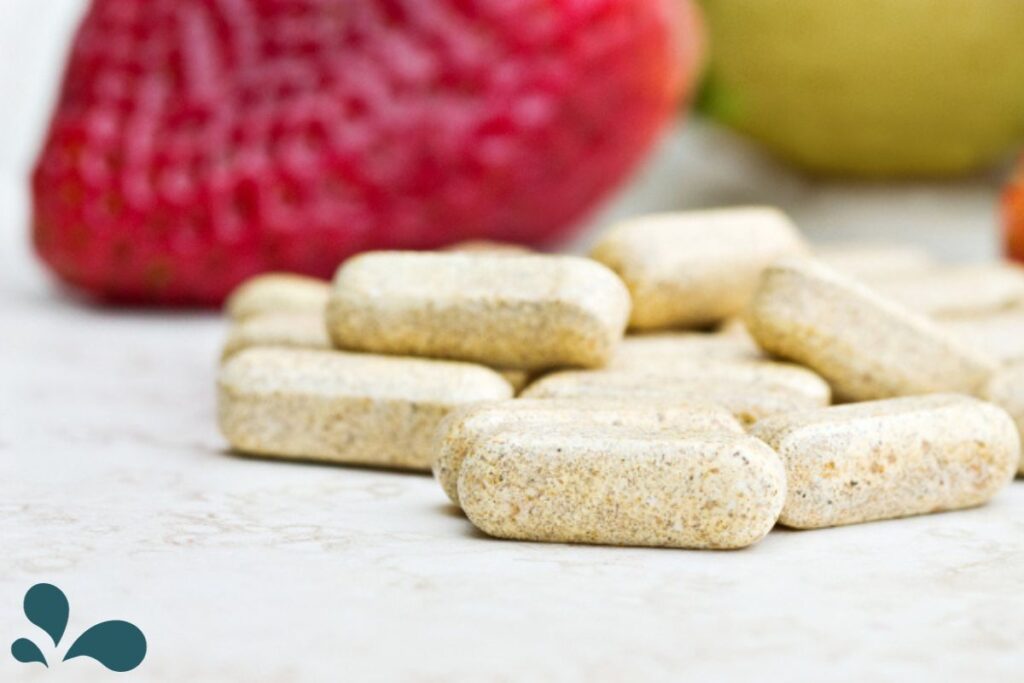
2 – Go see your doctor
Meeting with your doctor before getting pregnant helps make sure there are no underlying health problems that need to be treated before you get pregnant. Weisman and colleagues stated that “once women are pregnant, it may be too late to address maternal health problems or risks.”
It is recommended that you meet with your doctor to discuss current medications, weight, immunization records, family medical history, health concerns, and overall health before trying to get pregnant (Atrash,et. al.). As a Nurse, I have seen many women with depression or anxiety decide to stop taking their medication cold turkey before getting pregnant. They stop because they thought they couldn’t take their medication while they were pregnant.
This is not the case.
There are some medications that are not recommended to take while pregnant, but there are also medications for depression and anxiety that are safe to take while pregnant. You should never stop taking medications without discussing it with your doctor. Your doctor can help you know which medications are safe for you to continue taking, which medications you need to change, and which medications you should stop taking so that you have the best outcome. We want you to be happy and healthy while pregnant, not depressed and anxious.

3 – Pick a date
Picking a date to start “trying to get pregnant” will give you a timeline to accomplish the goals you make after reading everything on this list. If you are using a barrier method of birth control to prevent pregnancy, you can continue to use that until the day you start trying to get pregnant. If you use a hormonal birth control method, you may want to stop using that for up to 3 months before you start “trying” and use a barrier method to prevent pregnancy in between.
Some women will start ovulating immediately after stopping hormonal birth control, but others may take a couple months before they start to ovulate. Again, as a nurse I have seen women get pregnant immediately after stopping their birth control or getting their IUD removed. I have also seen it take several months to get pregnant after stopping birth control. Every woman’s body is different, and there are so many factors that go into getting pregnant, that it may take longer than expected to get pregnant.
4 – Stop smoking
Smoking can cause infertility. So, quitting can increase your chances of getting pregnant. Quitting also helps improve your health and the health of your baby. Smoking has been linked to multiple complications during pregnancy such as having an increased risk of miscarriage and stillbirth (Tobin). Smoking during pregnancy has also been linked to undernutrition for the unborn baby as well as low birth weight (Kolahdooz, et. al.).

5 – Stop drinking alcohol
Ethen and colleagues stated that a large amount of alcohol consumption before getting pregnant increases the chance of continuing to drink while pregnant. Pregnant women shouldn’t drink. Alcohol consumption during pregnancy increases the risk of preterm birth, low birth weight, the baby being small for gestational age (SGA), and Fetal Alcohol Syndrome. All of which can come with serious health problems and cause the baby to go to the NICU (Patra, et. al.).
6 – Decrease caffeine intake
Caffeine intake of more than 300 mg/day before pregnancy has been shown to increase the risk of miscarriage by 31% (Lassi, et. al.). If you are wondering how much caffeine you consume in a day check out the list below or check out this website for a larger list.
- 8 oz cup of coffee has 95 mg of caffeine
- 12 oz of Coca-Cola has 34.5 mg of caffeine
- 16 oz of Monster has 160 mg of caffeine
- 2 oz of 5-Hour Energy has 200 mg of caffeine (Caffeine Informer)
During pregnancy the body metabolizes caffeine much slower and caffeine is passed to the baby through the placenta (Cnattingius, et. al.). Energy drinks are not recommended while pregnant because they have such a high level of caffeine. Notice that a 5-Hour energy has almost the entire daily allowance of caffeine in a measly 2 ounces of liquid!
7 – Go to the Dentist
I know that going to the dentist is not the most fun thing, and as a matter of fact, most people hate it. Do you know anyone who enjoys it? But, It’s recommended to see your dentist before getting pregnant. Periodontal disease can be prevented and treatment of cavities and other problems can be taken care of before you become pregnant. Treatment can usually still be done during pregnancy, but some dentists will delay treatment until after pregnancy.
Also, during pregnancy, hormones can cause saliva to change and make dental problems worse. So, let’s go to the dentist and get everything looked, x-rays done, and treatment done before getting pregnant. Periodontal disease has been linked to “preterm birth, development of preeclampsia, and delivery of a small-for-gestational age infant” (Boggess & Edelstein).

8 – Get to a healthy weight
You should get within 15 pounds of your goal weight before getting pregnant (Tobin). Being at a healthy weight increases your chances of getting pregnant and can lead to a healthier pregnancy and postpartum period. Being overweight while pregnant can lead to complications such as preeclampsia, gestational diabetes, and large for gestational age (LGA) babies (Gunderson). You may wonder what “overweight” means. Body Mass Index (BMI) is a weight-for-height index used to classify underweight, normal weight, overweight, and obesity in adults (WHO).
| Classification | BMI (kg/m2) |
| Underweight | <18.5 (less than) |
| Normal weight | 18.5 – 24.99 |
| Overweight | 25.00 – 29.99 |
| Obese | ≥30.00 (greater than) |
If you need help measuring your BMI, you can use this BMI calculator by the Center for Disease Control (CDC). While being overweight can cause maternal and fetal complications during pregnancy, being underweight can cause other issues. Being underweight before getting pregnant increases the likelihood of preterm birth by 32% (Dean, et. al.).
BMI is not the end-all, be-all. According to my own BMI, I have been overweight for many years. My doctors were not concerned with my weight and I did not have any complications during pregnancy. I will be honest here and tell you that I am 6’ tall (yes, I’m a tall-y). Before I got pregnant I was at my heaviest weight of 210 lbs (a BMI of 28.5).
*Disclaimer: I had been going through fertility treatment for several years before becoming pregnant and my weight went UP and down a lot because of the hormone injections. And I’ll be honest again, I didn’t eat very healthy and exercise…well, exercise…hmm (I’m human). You can accomplish your goal of getting to a healthier weight by following the next guideline. I’ve gotten better (which is also part of that being-human element), so I know that you can do the same.

9 – Eat healthy and exercise
Eating healthy and exercise go together (like two peas in a pod). We all know that eating healthy and exercising are good for us, but it’s easier said than done. Getting in the habit of eating healthy and exercising before you become pregnant helps you to continue doing them during pregnancy as well as after you have the baby. Research has found that women that exercise, eat healthy, have a prepregnancy BMI less than 25, and don’t smoke are 83% less likely to get gestational diabetes (Zhang et. al.).
US dietary guidelines recommend higher intakes of vegetables, fruit, nuts, whole grains, polyunsaturated fatty acids, and omega 3 fatty acids and lower intakes of red and processed meats, sugar sweetened beverages, trans fats, and sodium before getting pregnant (Zhang, et. al). Eating at least one serving (one cup) of vegetables and one serving (one cup) of fruits a day before getting pregnant increases the health and growth of your baby when you become pregnant (Weisman, et. al).
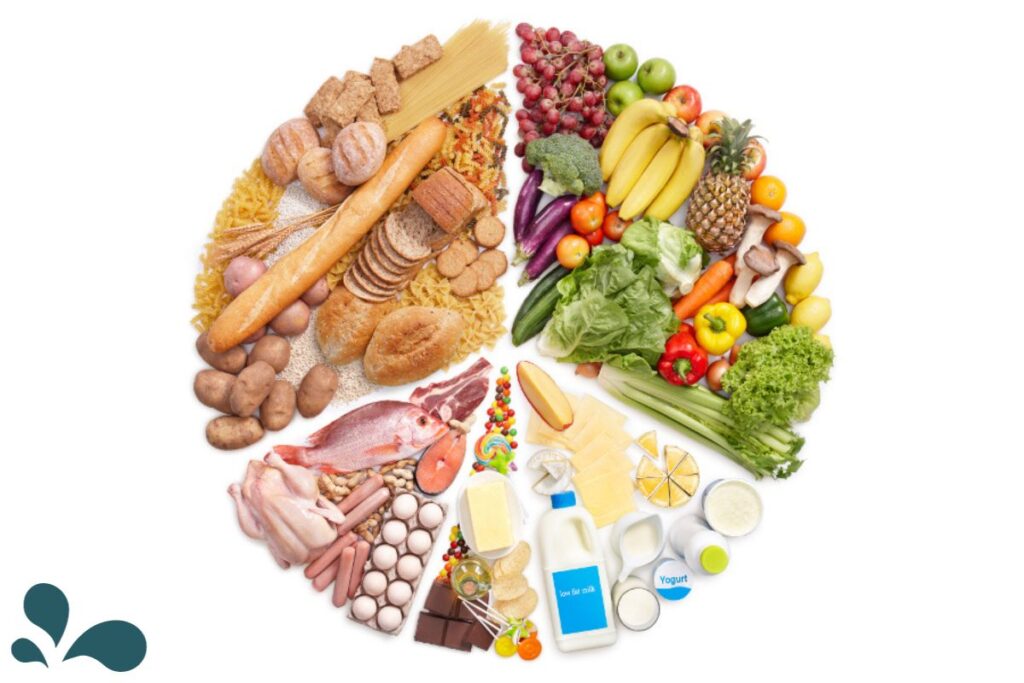
10 – Start tracking/charting your cycle
Keeping track of your period will help you to know how “regular” you are and when your ovulation window is so that you can know when the best time to “try” to get pregnant will be. It will also help when talking to your doctor about your cycle, or at your first pregnancy appointment to tell them when the first day of your last period was. The easiest way to do this is by using an App such as Period Tracker.
I use the Period Tracker app and have found it to be very helpful. I am able to add symptoms that I have, such as cramping and bloating, and kept track of when my period started, ended, and what the flow and color were each day. You don’t have to get that in depth if you don’t want to, you can just keep track of your period and then it tells you when you ovulate. It was really good for me to have this while I went through years of trying and ended up doing fertility treatments.
Following these 10 tips will help increase your health, your fertility, and your baby’s health once you become pregnant. Getting pregnant is not always as easy as it seems. If everything is working as it should, you still only have a 20% chance of getting pregnant each month (pregnancy truly is a miracle). So, be patient and give yourself 12 months before going to see your doctor (unless you are over 35 then give yourself 6 months).
I hope that this will help you as you move forward with your goal to become pregnant and that this list has helped you feel more empowered and confident with the choices you are making as a woman.
You are powerful. I hope this article has helped you recognize the power that you already have within, and that you will join me in spreading that recognition to everyone you know.

Sources:
- Atrash, H.K., Johnson, K., Adams, M., Cordero, J. F., & Howse, J. (2006). Preconception care for improving perinatal outcomes: the time to act. Maternal and Child Health Journal, 10(1), 3-11. https://doi.org/10.1007/s10995-006-0100-4
- Boggess, K. A. & Edelstein, B. L. (2006). Oral health in women during preconception and pregnancy: Implications for birth outcomes and infant oral health. Maternal and Child Health Journal, 10(1), 169-174. doi: 10.1007/s10995-006-0095-x
- Caffeine Informer (2018). Caffeine contents of drinks. Retrieved on January 5, 2018 from https://www.caffeineinformer.com/the-caffeine-database
- Cnattingius, S., Signorello, L. B., Annerén, G., et. al. (2000). Caffeine intake and the risk of first-trimester spontaneous abortion. The New England Journal of Medicine, 343, 1839-1845. DOI: 10.1056/NEJM200012213432503
- Dean, S. V., Lassi, Z. S., Imam, A. M., & Bhutta, Z. A. (2014). Preconception care: nutritional risks and interventions. Reproductive Health, 11(3), [1-15]. https://doi.org/10.1186/1742-4755-11-S3-S3
- Ethen, M.K., Ramadhani, T.A., Scheuerle, A.E. et al. (2009) Maternal and Child Health Journal, 13(2), 274-285. https://doi.org/10.1007/s10995-008-0328-2
- Gunderson, E. P. (2009). Childbearing and obesity in women: weight before, during, and after pregnancy. Obstetrics and Gynecology Clinics in North America, 36(2), 317-332.
- Lassi, Z. S., Imam, A. M., Dean, S. V., & Bhutta, Z. A. (2014). Preconception care: caffeine, smoking, alcohol, drugs and other environmental chemical/radiation exposure. Reproductive Health, 11(3), [1-12]. https://doi.org/10.1186/1742-4755-11-S3-S6
- Liu, S., West, R., Randell, E., et. al. (2004). A comprehensive evaluation of food fortification with folic acid for the primary prevention of neural tube defects. BMC Pregnancy and Childbirth, 4, 20. http://doi.org/10.1186/1471-2393-4-20
- Patra, J., Bakker, R., Irving, H., Jaddoe, V., Malini, S. and Rehm, J. (2011). Dose–response relationship between alcohol consumption before and during pregnancy and the risks of low birthweight, preterm birth and small for gestational age (SGA)—a systematic review and meta-analyses. BJOG: An International Journal of Obstetrics & Gynaecology, 118(12), 1411–1421. doi:10.1111/j.1471-0528.2011.03050.x
- Tobin, N. Ready, set, conceive! Fit Pregnancy and Baby. Retrieved on Dec. 30, 2017 from https://www.fitpregnancy.com/pregnancy/getting-pregnant/ready-set-conceive
- Weisman, C. S., Misra, D. P., Hillemeier, M. M., et. al. (2011). Preconception predictors of birth outcomes: Prospective finding from Central Pennsylvania women’s health study. Maternal and Child Health Journal, 15(7), 829-835. doi: 10.1007/s10995-009-0473-2
- World Health Organization (2004). BMI classification. Retrieved on January 5, 2018, from http://apps.who.int/bmi/index.jsp?introPage=intro_3.html


